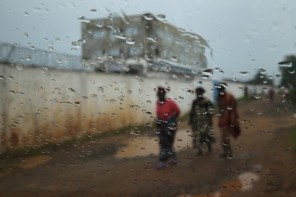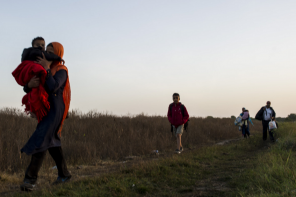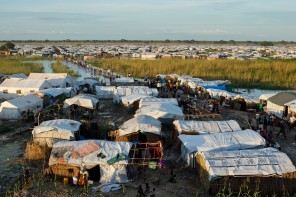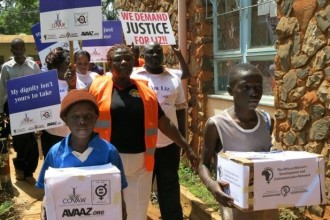Forget h/t. An out and out handshake to @sonjasugira for a link to The Revolution Will Not Come By PowerPoint, a very unsentimental essay by Martin Kimani at the role of rational thinking (read: development) in Africa that left me profoundly moved. Every paragraph had me thinking deeply about something. I’ll highlight just one section:
Africa’s conquerors have always come as humanitarians. This latest army, much of it homegrown, studiously ignores people while tirelessly enumerating the starving, the raped, the murdered, the jailed and the thousand other depredations visited on the African body. By resisting human complexity and the limits of their understanding, this sows confusion and apathy in the name of policymaking and entrenches the injustices of the status quo.
For the record, I think your news journalism, especially wire reporting, often makes the same mistakes. But that’s for another time. Meanwhile, read Kimani’s essay. Now. If you don’t, don’t talk to me for awhile.
But speaking of journalism: This week’s bitch-slap to the media is done rousingly and well by Andrew Stroehlein of the International Crisis Group, in a commentary about American reporting on the church leader who wanted to burn the Qu’ran. (h/t @baldaufji)
“But it was a story, so we had to cover it”, will be the [argument].
Bullshit. You made it a story. No one had ever heard of this guy until you gave him the chance to multiply his hate. And just because another TV news outlet covers a story, doesn’t mean you have to. You can make decisions independent of other news outlets. That is, after all, why you have a job: your company does not outsource its editorial decision making to the competition.
The rest of it is worth a good look, and applies to covering more than crazy-rabid-Muslim-haters.
Meanwhile, Nieman Reports, one of our professional journals, actually left me optimistic about foreign reporting. Apparently one third of Americans — one third! — told Pew researchers they want more international coverage. (I will name children after all of you.) An ex-BBC news producer looks at how that coverage might succeed (yes, even if it’s done by us white people).
There’s also a fascinating look at the similarities and differences in the work of journalists and the work of Human Rights Watch, of which I find this observation worthy of extended consideration:
There are extremely good journalists who get tired of treating all stories with the same pretense of aloofness—especially the ones who have covered mass atrocities. Think of Christiane Amanpour’s impassioned pleas for Western intervention in Bosnia. War photographers, in particular, have often witnessed a great deal of extreme brutality. For their psychological health, some of them want to contribute to an organization that’s doing something about it, not just covering it and moving on.
One day, I hope we can all agree that aloofness is so 1990s.





1 Comment